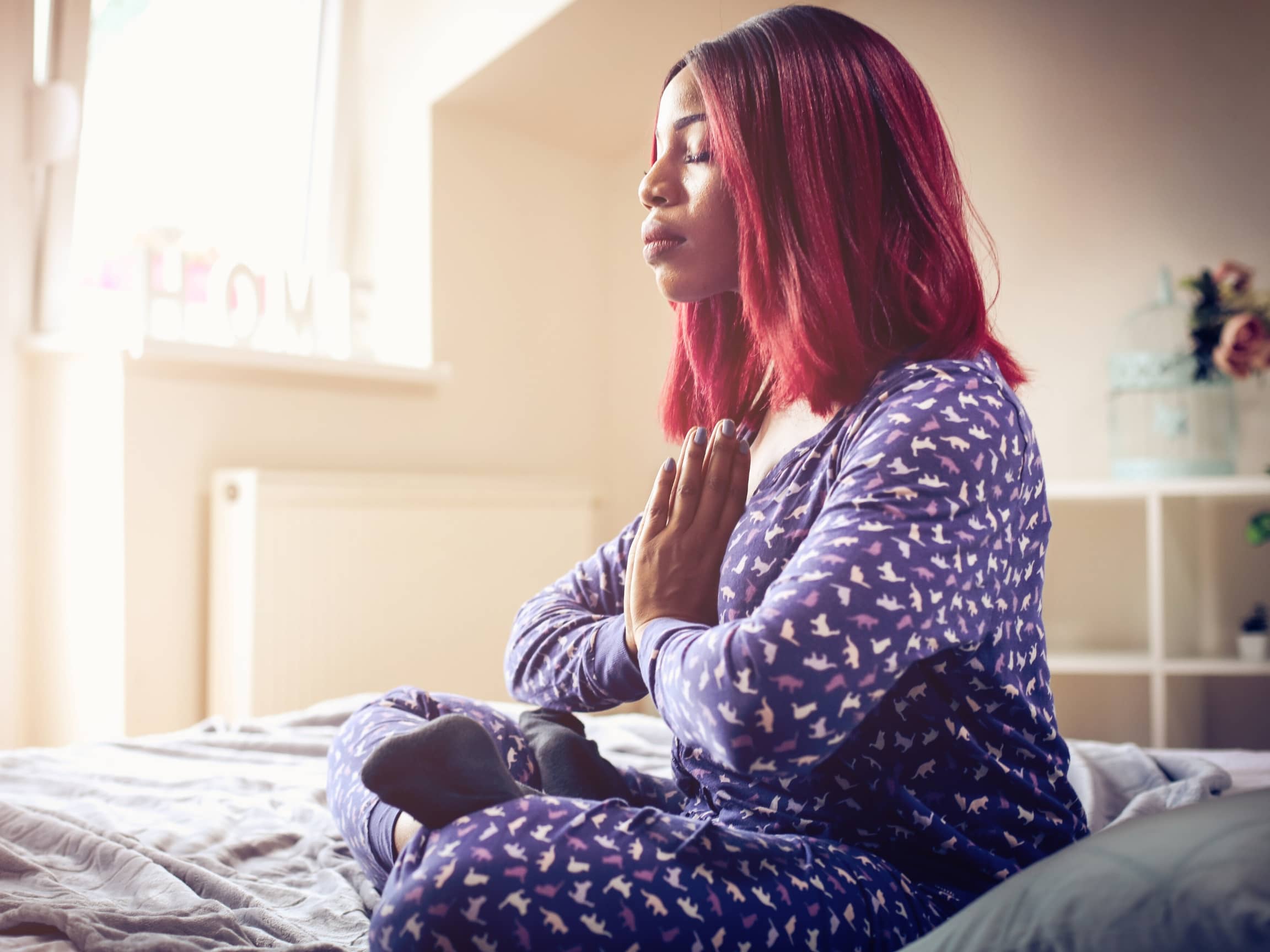
If you’re living with an eating disorder, the recent outbreak of novel coronavirus (COVID-19) has likely added to your stress levels. In addition to the anxiety and fear surrounding the outbreak, there are unique ways it may trigger eating disorder thoughts and behaviors.
In this article we’ll look at different categories of coronavirus triggers to eating disorder recovery and how to combat them, including food-related triggers, exercise-related triggers and stress and boredom-related triggers.
Food-Related Triggers
Many people have expressed fears over lack of food during the coronavirus outbreak. People have been buying more at the grocery store and “stockpiling” food as a precautionary measure. This can trigger eating disorder thoughts in many ways.
Access to Large Amounts of Food
For those who struggle with binge eating disorder, having access to a lot of extra food can be difficult. While the stockpiling behavior we’ve seen as a response to the outbreak may seem outlandish, the Centers for Disease Control and Prevention (CDC) recommends having an emergency two-week supply of food and other essentials in the event that you would need to quarantine due to exposure or become ill and need to recover.
How to Cope:
If you struggle with binge eating, talk to your mental health provider about managing triggers while staying prepared according to CDC recommendations.
Disruptions to a Meal Plan
As more people are buying groceries during the outbreak, certain foods may be out of stock temporarily. For those following a specific meal plan in recovery, these shortages could disrupt that plan.
How to Cope:
If you’re concerned about accessing specific foods on your meal plan during the coronavirus outbreak, talk to your treatment team about how to modify the meal plan and adapt to a changing situation. Many foods have healthy substitutes that may be easier to find.
Anxiety Over Potential Food Shortages
Concerns over a potential food shortage may cause some individuals to eat less. For those who have struggled with anorexia or restrictive eating behaviors trying to conserve your food supply can endanger your recovery.
How to Cope:
Dealing with food shortage anxiety is tricky. It can be alleviated by staying informed, but watching and reading the news can also provoke anxiety. A good rule of thumb is to absorb information in moderation. Focus on news that comes from limited medical sources rather than companies that make a profit by pulling in more viewers.
As of now, some items may have limited stock, but there is no risk of stores running out of food. Regardless of the severity of the spread of the virus, people will always be allowed to purchase essentials. Rest assured, you do not need to conserve or ration food.
Exercise-Related Triggers
Many gyms and fitness centers have closed to prevent the spread of COVID-19. On top of this, many state and local governments are recommending that people who are at a higher risk from coronavirus stay in their homes as much as possible and avoid large social gatherings. These and other factors could lead to anxiety over getting a healthy amount of exercise.
How to Cope:
If you’re currently in recovery from an eating disorder, ask your treatment provider how you can reintegrate exercise into your life during the coronavirus outbreak. Gyms near you likely offer at-home classes and personal trainers are able to use video-conferencing platforms. Many workouts require no equipment and you can try searching “low impact workouts” for apartment-friendly and modifiable exercises.
Stress and Boredom Triggers
The pandemic ushered in dozens of other stresses. Worry about getting sick, concern for vulnerable friends and family, the stress of working from home, financial concern and more have left many people feeling down. Stress coupled with boredom and isolation is a breeding ground for negative feelings.
Social Distancing and Isolation
Quarantining and staying at home may prevent you from interacting in-person with friends and family. While virtual meetings can bring some joy to the monotony of staying at home, it’s no replacement for hanging out with your loved ones. Additionally, being at home leaves you with more time to dwell on negative thoughts and emotions.
How to Cope:
Although you may not be able to go see your therapist in-person, you can still use technology to process your feelings about isolation and brainstorm ways to combat these trigger to eating disorder behaviors. Use an online platform to check in with your mental health professional from the comfort of your own home.
Your self-care routine is also a vital tool that can get you through this stressful time. Write out a list of self-care activities that you can turn to when you are feeling overwhelmed by negative emotions. Continue to engage in self-care activities until your emotions are under control and work hard to keep bonds with your loved ones over the phone, online and even through snail mail.
Managing COVID-19 Triggers
If you’re facing any of these triggers right now, you may feel like your eating disorder recovery is being threatened. Luckily, there are ways you can cope and continue to work toward recovery. Practice self-care, try online counseling, modify meal plans and do what you need to do to stay positive and well.
We’re committed to finding ways to continue delivering quality care during this uncertain time. Therefore, we have implemented the ability to offer the same services in all of our outpatient locations during the current crisis using teletherapy videoconferencing technology. Call (610) 644-6464 or schedule your appointment today.


